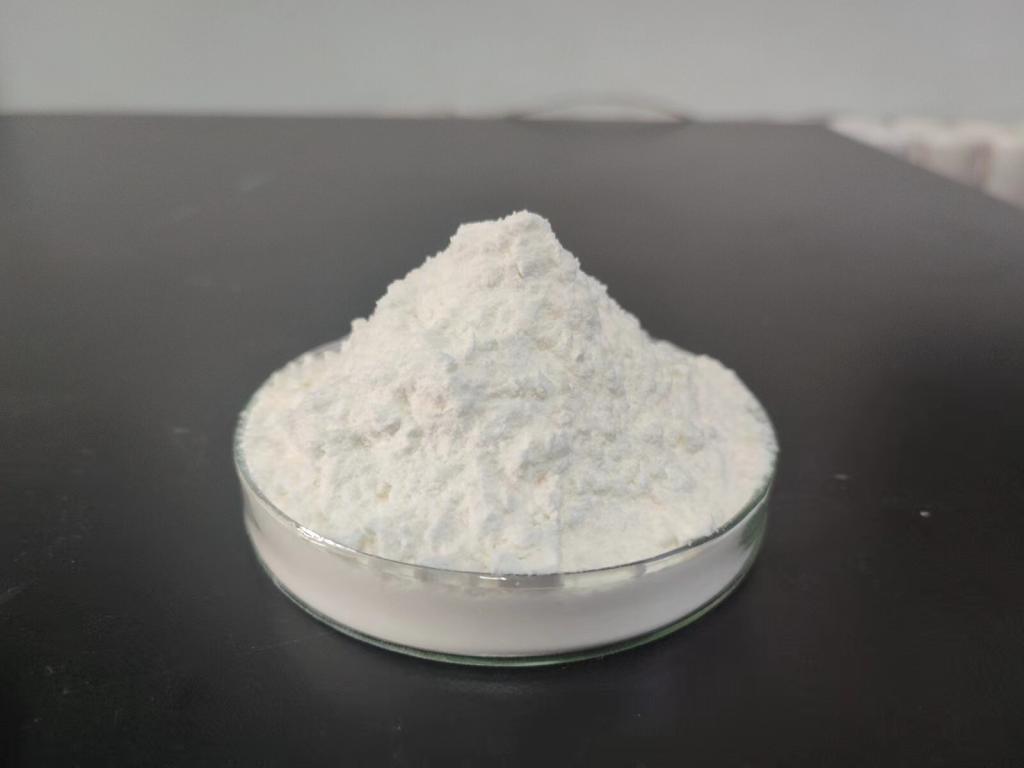Tel:0086 18231198596

News
Current Position:
Home >
News
>ε-Polylysine Hydrochloride: A Natural Approach to Enhance Soil Microbial Health
ε-Polylysine Hydrochloride: A Natural Approach to Enhance Soil Microbial Health
TIME:2024-02-05
Understanding ε-Polylysine Hydrochloride:
ε-Polylysine is a polymer of the amino acid lysine, produced by certain strains of bacteria through fermentation. The hydrochloride form enhances its solubility and stability, making it suitable for various applications. Known for its antimicrobial properties, ε-polylysine has been traditionally utilized in the food industry as a natural preservative. Recent research suggests its potential benefits extend beyond food preservation, with implications for soil health and sustainable agriculture.
Antimicrobial Mechanism of ε-Polylysine:
The antimicrobial mechanism of ε-polylysine lies in its ability to disrupt microbial cell membranes. As a cationic polymer, ε-polylysine interacts with negatively charged components on the surface of microorganisms, leading to membrane permeabilization and cell lysis. This selective antimicrobial action makes it effective against a broad spectrum of bacteria and fungi, including pathogens that can negatively impact soil health.
Applications of ε-Polylysine Hydrochloride in Agriculture:
a. Seed Treatment: ε-Polylysine hydrochloride can be applied as a seed treatment to protect seeds from soil-borne pathogens. Coating seeds with a solution containing ε-polylysine enhances germination rates and provides an early defense mechanism against harmful microbes in the soil.
b. Soil Amendments: Incorporating ε-polylysine hydrochloride into soil amendments or organic fertilizers can promote a healthy microbial balance. By inhibiting the growth of pathogenic bacteria and fungi, ε-polylysine creates a favorable environment for beneficial microorganisms involved in nutrient cycling and plant symbiosis.
c. Crop Protection: Foliar applications of ε-polylysine hydrochloride can serve as a natural defense mechanism against foliar pathogens. This approach minimizes the need for synthetic chemical pesticides, aligning with the principles of sustainable and environmentally friendly agriculture.
Promotion of Beneficial Microorganisms:
One of the key advantages of ε-polylysine hydrochloride is its selectivity in targeting harmful microorganisms while sparing beneficial ones. This selectivity is crucial for maintaining a balanced soil microbiome, where beneficial bacteria and fungi contribute to nutrient cycling, organic matter decomposition, and disease suppression. Research suggests that ε-polylysine may enhance the abundance and activity of beneficial microorganisms, further promoting soil health.
Eco-Friendly Alternative to Synthetic Chemicals:
As agriculture seeks more sustainable and eco-friendly practices, ε-polylysine hydrochloride presents itself as a viable alternative to synthetic chemicals. Its natural origin, biodegradability, and targeted antimicrobial action align with the growing demand for environmentally conscious agricultural solutions. By reducing reliance on synthetic pesticides and antimicrobials, ε-polylysine contributes to the preservation of biodiversity and the overall ecological balance in agricultural ecosystems.
Impact on Soil Structure and Nutrient Cycling:
The health of the soil microbiome is intricately linked to soil structure and nutrient cycling. ε-Polylysine hydrochloride's role in promoting a balanced microbial community has positive implications for these critical aspects. Enhanced microbial activity improves soil structure, increasing water retention and nutrient availability for plants. Additionally, the degradation of organic matter by beneficial microorganisms is facilitated, contributing to the long-term fertility of the soil.
Field Trials and Case Studies:
Field trials and case studies provide valuable insights into the practical applications and effectiveness of ε-polylysine hydrochloride in agriculture. These studies evaluate its impact on crop yields, disease resistance, and overall soil health under real-world conditions. By examining diverse agricultural settings, researchers and practitioners can gather data to support the integration of ε-polylysine into different farming systems.
Challenges and Considerations:
Despite its potential benefits, the use of ε-polylysine hydrochloride in agriculture raises certain challenges and considerations. These include determining optimal application rates, potential effects on non-target organisms, and the persistence of ε-polylysine in the environment. Ongoing research is essential to address these concerns and refine the guidelines for its responsible use in agriculture.
Future Prospects and Research Directions:
The integration of ε-polylysine hydrochloride into sustainable agriculture is an evolving field with promising prospects. Future research directions may include exploring its synergistic effects with other soil amendments, understanding its impact on specific crop-microbe interactions, and developing innovative formulations for enhanced efficacy and stability.
Conclusion:
In conclusion, ε-polylysine hydrochloride represents a natural and innovative approach to enhance soil microbial health in agriculture. Its antimicrobial properties, selectivity, and eco-friendly profile position it as a valuable tool for promoting sustainable farming practices. By fostering a balanced soil microbiome, ε-polylysine contributes to improved crop yields, nutrient cycling, and overall ecosystem resilience. As agriculture continues to evolve towards more sustainable practices, the integration of ε-polylysine into soil management strategies holds great potential for the future of sustainable and resilient food production.

 CONTACT
CONTACT




